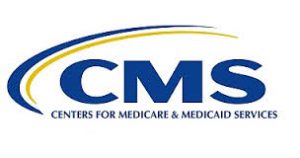More than 70% of all medical devices that have been recalled by the FDA for safety concerns were not subjected to rigorous clinical testing before the agency approved them, according to a new study.
The study authors were Diana Zuckerman and Paul Brown from the National Research Center for Women and Families, a consumer group, and Steven Nissen, a cardiologist at Cleveland Clinic.
The authors reported that overall, the FDA recalled 113 medical devices between 2005 and 2009. Of these, 21 had been approved on the basis of rigorous clinical trial data. Eighty others had been approved under a less stringent, expedited approval process known as 510K, in which a device maker needs only to show that its new product is substantially similar to one already on the market. An additional 8 devices were exempt from FDA regulations, and 4 more were either counterfeit or classified as “other.”
Devices approved using the 510K approval process included mechanical ventilators, insulin infusion pumps, artificial hips and knees, and external cardiac defibrillators. The more rigorous process is typically reserved for life-supporting devices like implanted cardiac defibrillators. In the latter process, device makers must sponsor trials designed to prove their products are safe and effective.
Last summer, the FDA announced it was implementing some steps to “strengthen” the 510K process, but it deferred on a complete overhau pending the release of a report on the matter by the Institute of Medicine. The report is due later this year. In an interview, Zuckerman said her group’s findings suggest that the FDA’s actions to date on 510K aren’t adequate. Device manufacturers have managed to expand the concept of “similar” well beyond the FDA’s original intent when the 510K law went live in 1976, Zuckerman explained. “The law has gotten looser and looser over time.”
The FDA blew-off Zuckerman’s findings as old news. According to a statement by the agency, the data had been presented by Zuckerman last year at a public meeting sponsored by the IOM.
For its part, the Advanced Medical Technology Association, a device industry trade group, said the study was misleading. It wasn’t surprising that 510K-approved devices accounted for most of the recalls, the group said, because most FDA-approved devices have gone through the 510K process.
Stephen Ubl, the Association’s CEO added that the study was “fundamentally flawed” since it focused “on the total number of recalls and ignored the fact that there are over 50,000 devices on the market.”
Ubl added that the percentage of products recalled for serious health problems or deaths was substantially below 1%. He added that an overly strict regulatory process would hinder innovation and prompt device manufacturers to move product development to other countries where regulatory scrutiny isn’t as intense.
Zuckerman’s write-up appears in the Archives of Internal Medicine.







